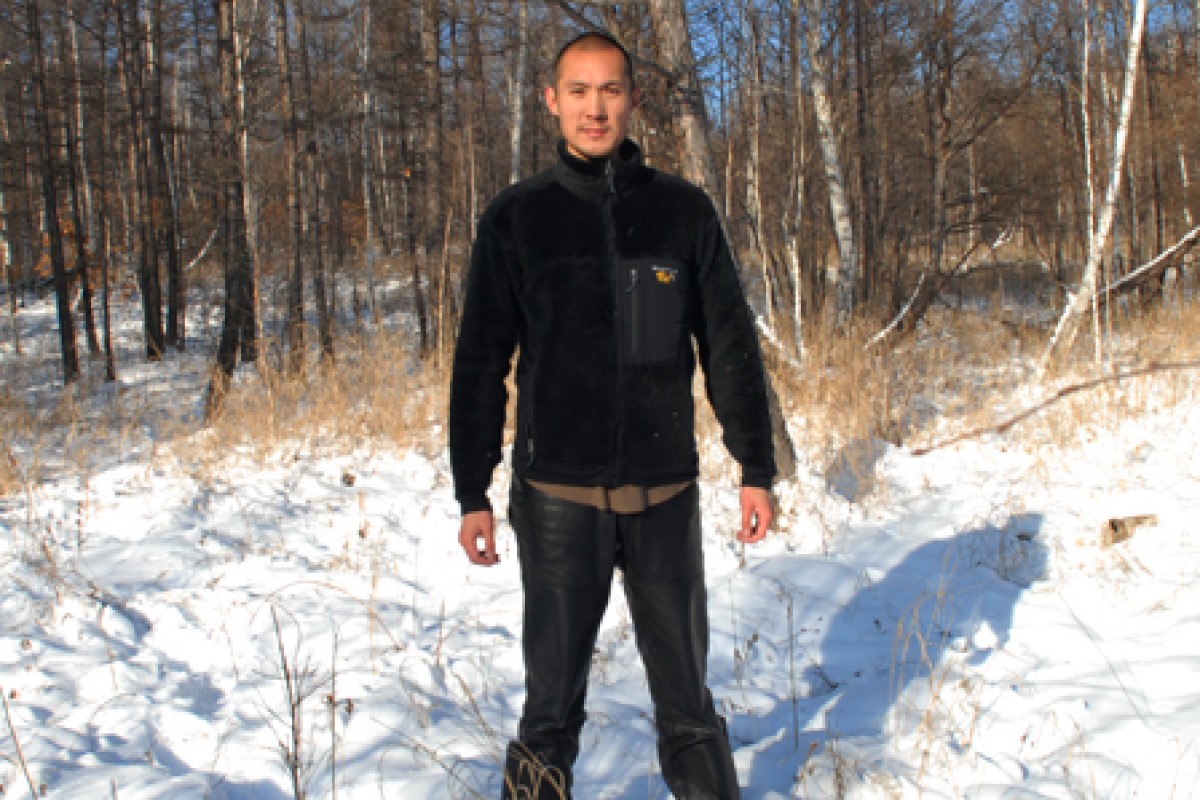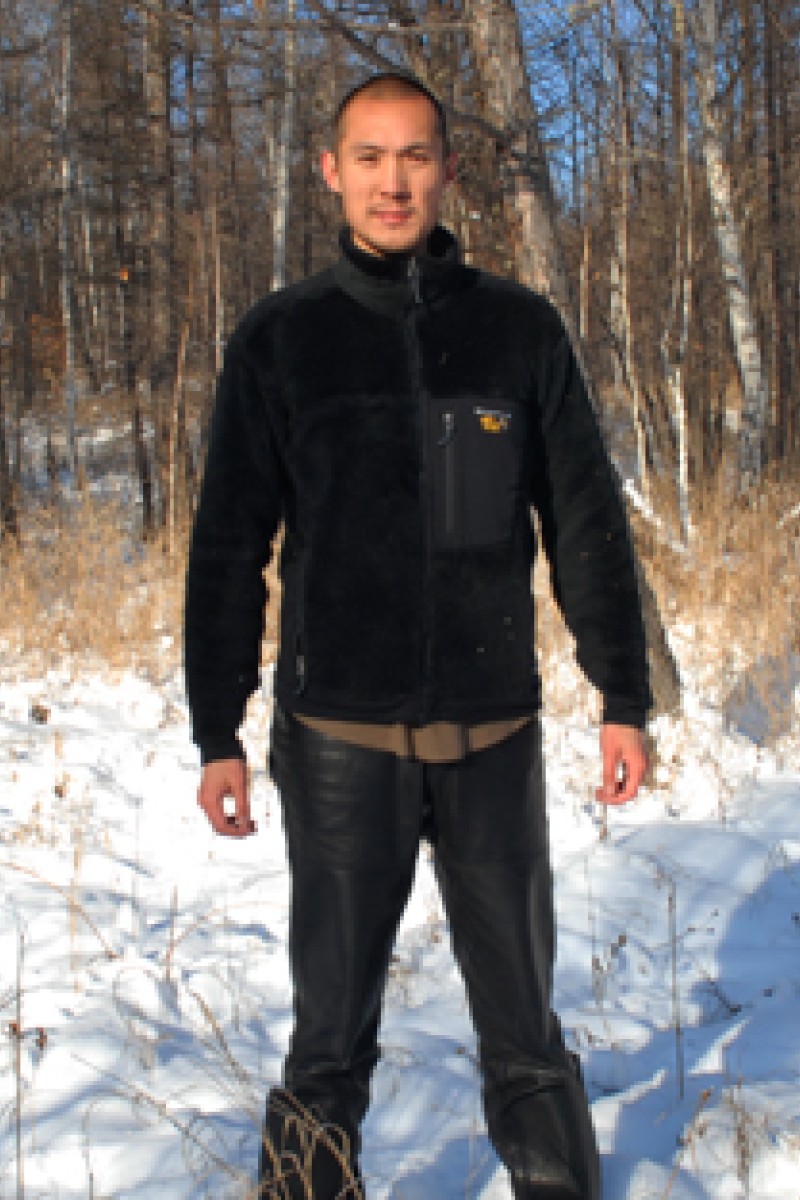 Chao Hing in the wilderness
Chao Hing in the wildernessChao Hing - founder of Earthpulse, a charity that supports ethnic minorities - first found out about the hardships faced by the Orochen while he was backpacking in the area in 2000. "When I came to this place, I immediately fell in love with it and its people. I saw that they have many problems and needed help, and more importantly, their culture is dying. I have to preserve it," he says.
It has been more than half a century since the Orochen were forced to settle in villages instead of living in tents in the woods and hunting for a living.
"They have been uprooted from their own culture," Chao says. "Many people, especially the men, have not been able to adjust. Some have turned into alcoholics or even chosen to end their lives, leading to many social problems."
Chao learned deer-hunting skills
Chao's first step was to learn more about the culture. Whenever he visited the Khingan Mountains, he would pick the brains of village elders. "Their songs, their dances and their hunting skills ... I wanted to learn them all. I spent two weeks in the woods with a hunter, and that was a mind-blowing experience. The Orochen see the forest like no one else. From the footprints and droppings of animals, they can tell you the size of the herd, where they are heading and when they'll come back to the area," says Chao.
During the Cultural Revolution of the 1970s, the hunting tools of the Orochen were destroyed, and they were forbidden to practise their traditions. "The village elderly weren't able to remake the tools, but I got lucky," Chao says. "From old photos, I discovered that a research student at Cambridge University and a German ethnographer had visited the Orochen as early as the 1920s. After some effort, I was able to track down some Orochen traditional tents and hunting tools in museums in Europe. I brought them back, and that allowed the village elders to make their tools again."
Traditional tool-making
He also re-started the traditional Orochen festival of Chen Der Di Ren in 2005 after a 50-year absence. "The festival takes place in autumn, and tribes gather to compete in games and set up marriages. It is important to teach young Orochen about their culture," he says.
There's a similarity between what Europeans did to the indigenous people when they overran North America, and what Chinese culture has done to the Orochen. However, in recent years, native American culture has been revitalised as its people have become more educated.
Chao hopes the Orochen can do the same. He has devoted a lot of the charity's funding to educating the Orochen youth.
"I believe education is the answer to helping the Orochen people," he says. "The culture of the Orochen is up to them to save. All I did was to give them a chance to decide their own destiny."
Some Orochen people are living in tents again
